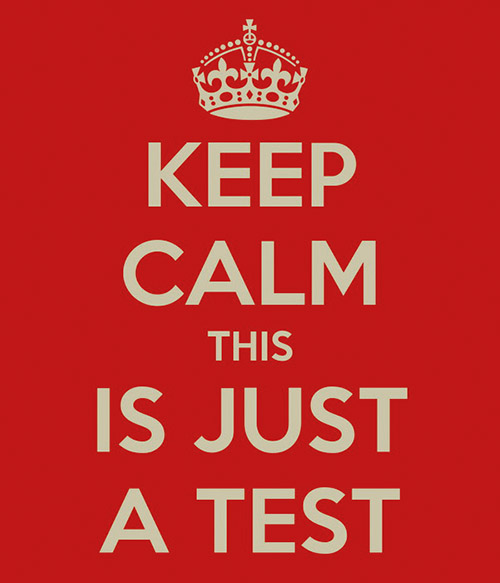
Pirkei Avos tells us (5:3) that Avraham was challenged and tested 10 times. Rashi and the Rambam differ on what exactly these 10 tests were. What they both agree on, though, was that being asked to sacrifice Yitzhak was the toughest test of all. The underlying question that needs to be asked is why did Avraham have to be tested at all? For that matter, why are the rest of us continuously challenged and tested in life? Why can’t we all simply be allowed to coast along and be content to let things be?
Rebbetzin Esther Jungreis wrote a book entitled, “Life is a Test.” She posed a similar question. “Why does God have to test us? A physician has to test his patients to determine the nature of their illness, a teacher has to test his students to evaluate their progress, but why does an all-knowing God—who sees everything, who is familiar with even the most secret machinations of our hearts—why does He have to test us?”
I once heard the answer to this question explained as follows: We only become stronger when we are challenged. The analogy is to training at the gym. Surely, it is easier to never exercise and stay flabby. However, when we lift weights we challenge our muscles. The more we engage in this so-called resistance training, the stronger our muscles become. Seen in this light, lifting weights is not a burden. Instead, we embrace this because it makes us stronger. In a similar way, encountering challenges and being tested throughout our lives allows us to realize our potential and makes us stronger in our character and our abilities. Remember being in school? We never felt as sharp and knowledgeable as when we prepared for our examinations. When we were tested, it brought out the best in us.
Rebbetzin Jungreis writes, “From the moment we are born, to the day that God calls us, we are tested. In essence, everything is a test, and once we absorb this, it will become easier to bear the many challenges and trials of life. These tests come in many shapes and forms—the way we relate to God, to our parents, our teachers, our peers, our neighbors, our co-workers, our colleagues, even to a clerk in a store, a waiter in a restaurant or a fellow driver on the road, are all tests. These tests reflect the genuineness of our commitment, the depth of our faith and the measure of our character, and at the end of the day, we are marked pass or fail.
So, indeed, Avraham was tested over and over again. When he heard the call he was able to respond and say, “hineni, here I am.” He passed all of his trials and this brought out the best in him.
Another characteristic of being tested is the examination process itself. Before a school based test the teacher will review the materials over and over again. The teacher will hand out assignments and generally be very helpful. On the day of the test, however, the teacher sits quietly at his desk. The students are put through the examination process while the teacher sits back and watches. He is no longer overtly helpful. Yet, he is still there. Similarly, Hashem prepares us for the challenges in life. While we go through our tests in life it may seem as though he is being silent. However, we need to remember that Hashem is always there and that we are following a divine plan.
May we all be able to meet the challenges and tests that come our way in life. May we learn to realize that these challenges are not meant to simply wear us down. Instead, like lifting weights in a gym, these challenges are meant to strengthen us and help us fulfill our potential. May we be able to emulate Avraham Aveinu and answer the call, saying, “here I am,” passing the various trials we encounter throughout our lives.
Rabbi Dr. Avi Kuperberg is a forensic, clinical psychologist and a member of the American Psychology-Law Society. He is past president of the Chai Riders Motorcycle Club of NY/NJ. He is the coordinator of Bikur Cholim/Chesed at Congregation Torah Ohr in Boca Raton, Florida. He can be reached at [email protected]










